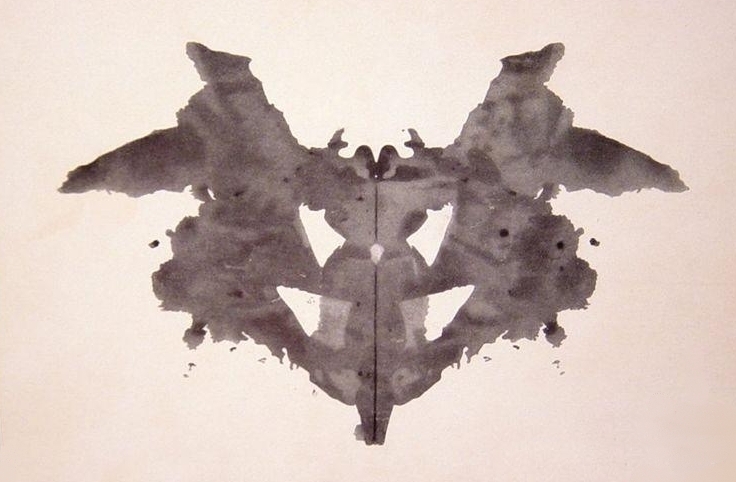
Our reaction to the Government’s Race Report tells us more than the report itself. 🧵👇
10 inkblots – mixed in form, colour and movement – are presented one by one. A single question is asked: “What do you see?”.
So, what do you see? A bird? A bat? A rib cage?
So, what do you see? A bird? A bat? A rib cage?

Know this. Your answer matters. We are not assessing your eyesight – we are assessing you. In America, custody battles are settled on your answer, medical diagnoses made, insurance claims declined. This is the Rorschach test.
We stare at the same image. The same flecks of paint, the same colours, the same blots. And yet, our mind forms different patterns, different images, different interpretations. Why?
Because we are different. We come to the inkblots carrying our own history, our own pains and our own joys. Like a particle changed by observation, the inkblot becomes loaded with ‘us’. It has no secrets to reveal but it gladly spills ours.
This week the UK government published the Report of the Commission on Race and Ethnic Disparities, or – named after its Chair – the 'Sewell Report'. In so doing, they conducted the ultimate Rorschach test.
As news of the report spread, images coalesced in readers’ eyes. To many it was “poisonous”. To others, “common sense”. Some saw it was “selected and distorted”. Others that it was “sensible and interesting”. Some knew it was “an insult”. Others, a “vital contribution”.
There is much to say about the report. I will leave that to others. My eye is elsewhere. For the most interesting story is never the inkblot, it is the image it creates inside each one of us. And amidst those divergent images, we can detect a truth about our country.
Many Black Britons see in the report a purposeful ignorance of the heavy weight of their lived experience. The daily weight of feeling watched, assessed, and typecast. The weight of telling their children how to behave around people who are meant to be there to protect them.
The weight of preparing children for a world that will mark their CVs more harshly, discount their predicted grades more fiercely, and stop and search them more frequently. Many feel tired of an impossible choice: complain and be stereotyped; say nothing and feel complicit.
Many are tired of speaking up and tired of sitting by. Tired of hoping and tired of having no hope. They do not need to read the report to see the image it forms. It is an image that mocks their experience.
Many White Britons are also tired. Tired of feeling in the wrong. Tired of hearing that they are privileged when they don’t see it in their pay packet. Tired of fearing judgement for the wrong word, the wrong thought,the wrong cause. This isn’t meant to happen to them, they feel.
They shouldn’t be the baddie. They used to be the heart of the story of the country – they say – and now they feel pushed aside. They do not need to read the report to see the image clearly. An image of them no longer being blamed.
Let me not forget one more group. Those who are doing well. Those who always do well. We are careful to do well. We search for the right side of history and slide into it .
We check our privilege but mostly no more than is needed. Enough to appear anti-racist. But rarely enough to cost us.
Sometimes we think we are unique. The only ones free of baggage. Though it is odd – we notice - how often people seem to get knocked over when we turn around.
We do not need to read the report to see the image clearly. It tells us to nod along. To keep our head down. As soon as possible, to return to our nice lives as far away from contentious things as possible.
The Sewell Report was news this week. But it was not the real news. No, the real news lay in those divergent images.
And yet as the paint on the inkblots dries, there is one image we can all see. The image of our country more divided than united, more hurting than healing, more longing to be heard than able to listen to one another.
If you enjoyed this thread, you can read more about our Fractured and how we mend them here: amazon.co.uk/Fractured-soci…
• • •
Missing some Tweet in this thread? You can try to
force a refresh



